It was another great year for LGBTQ books, as evidenced by the sprawling list of 65 standout titles across every genre published by Casey Stepaniuk earlier this month. Her list is a great display of the range and depth of the year’s top queer books. But I wanted to zoom in a bit and offer a personal list, one narrowed down from my own stack of queer books I worked my way through over the past year. I thought it would be fun to do a ranked list of the 12 queer novels that stood out to me this year. And by “fun,” I mean pleasurably agonizing. This was not an easy list to put together. There are several novels that almost made the cut and might even be just as worthy of a spot on the list but were nudged out for some abstract reason that would be difficult for me to perfectly explain. What I like about this final 12 is that they’re all very distinct novels from one another, even as some of them can easily be put into conversation with one another. Together, they form a thrilling tapestry of my year in queer reading.
Many of the novels on the list do not have standalone reviews on Autostraddle yet, as I regrettably fell behind on books coverage this summer. But one of my 2024 goals as the lead editor of the Literature vertical here is to retroactively correct that in the coming months. So while my blurbs below are brief, you’ll be hearing more about these novels very soon.
Here are the 12 best queer novels of 2023.
12. Homebodies by Tembe Denton-Hurst
A confident and capable debut, Black and queer media worker Mickey Hayward finds herself unceremoniously kicked out the door, prompting her to write a takedown of the entire industry, exposing the various levels of racism and sexism she experienced. Little happens as a result, and Mickey has to go backward to go forward, leaving the life she has built in New York with her partner Lex to move back to the Maryland suburbs and grapple with it all. Back in the hometown, lots of expectations and an ex await. As a media worker myself, I of course found much to love and wince at in the easy-to-flip pages of Homebodies. And the messy queer drama of it all delights.
11. Yours for the Taking by Gabrielle Korn
There’s nothing scarier to me these days than climate fiction — or, more accurately, climate horror — and in Yours for the Taking, Korn paints a bleak picture of the future. The earth becomes inhabitable, so projects known as Insides, essentially glassed-in cities sealed off from the endless storms and unlivable heat, emerge. But Insides aren’t driven by community care or radical revolution; they’re projects of capitalism and status quo. And when ultimate girlboss Jacqueline Millender takes control of one, her promise of a gender revolution that places women, and mothers in particular, at the top of society reeks of dangerous white feminism. Little pockets of hope and heat (the welcome kind) emerge throughout the narrative in the form of queer love stories. As I write in my review:
Yours for the Taking understands well that in the face of climate change, capitalism won’t save us. Matriarchy won’t save us. Jacqueline’s attempts to reimagine the world aren’t revolutionary. She manufactures community rather than fostering it. And yet, communities and platonic love and queer love still find a way to bloom despite the constraints of surveillance and suppression. Korn captures those bursts of resistance and hope, but Yours for the Taking is often most enthralling when needling into its characters’ most harmful choices.
10. Big Swiss by Jen Beagin
Beagin’s novel, according to my review, “veers from horny to humorous to macabre in zigs and zags.” It follows Greta, a 45-year-old transcriptionist for a sex therapist who becomes obsessed with one of the clients whose sessions she pens. She gives this mystery woman the nickname Big Swiss, but a chance run-in with the object of her obsession at the local dog park deepens the obsession, blurs boundaries. Big Swiss is a 29-year-old gynecologist who has never had an orgasm, and the two embark on an affair built on a massive lie, Greta concealing her true identity from the woman whose inner life she has access to. “The novel asks ongoing and open-ended questions about sex, trauma, violence, about violation, observation, obsession,” I write in my review. And if that sounds as up your alley as it was mine, this is definitely a novel for you to check out.
9. Your Driver Is Waiting by Priya Guns
A high-octane debut novel that burns brightly at the turn of every page, Your Driver Is Waiting veers through the racetrack of first-person narrator and rideshare driver Damani’s life as she navigates taking care of herself, her mother, and her community after the death of her father, who was killed quite literally by capitalism by my reading. Damani lives constantly on the edge: Her financial situation is perilous, she’s impulsive, and she throws herself into a fraught relationship with a white girl who doesn’t really get the contours of her life. I like what I wrote in my review about the idea of the novel as “satire”:
Some readers may be tempted to label Your Driver Is Waiting as satire. A ride share app called RideShare, blanket protests against things Damani can’t even keep track of, the fact that that fancy fundraiser turns out to be for a new brand of spring water called The Fight that promises to donate ten cents from each bottle to a breakfast plan for local city kids…it does all sound heightened and on-the-nose. But it doesn’t read as satire, just like Succession or White Lotus aren’t really satire. The characters and their behaviors on those shows about the ultra-wealthy are completely believable, just like the events, emotional stakes, motivations, and world-building details of Your Driver Is Waiting are closer to reality than to dystopia. In being so in your face and heavy-handed, the novel is actually quite effective in its scathing critique of capitalism and white supremacy and of some of the mainstream, toothless efforts to combat it.
8. Pomegranate by Helen Elaine Lee
Pomegranate opens just as its protagonist Ranita is about to get out of prison after a four-year sentence for opiate possession. She leaves behind haunting memories but also Maxine, a lover who loved her well and whose soft touch is present throughout the novel almost like a gentle haunting. Freedom in Pomegranate is complicated. Family is complicated. The novel portrays addiction and recovery with specificity, nuance, and empathy, and doesn’t present them as binary categories but rather both forces that operate nonlinearly and unpredictably in Ranita’s life. At the risk of sounding corny, the novel is indeed like a pomegranate itself: acidic and sweet in equal measure. Crack it open and marvel at all its interconnected seeds.
7. Brainwyrms by Alison Rumfitt
In Brainwyrms, transphobia is quite literally a parasitic infection that violently takes over its hosts’ minds. That on-the-nose metaphor shouldn’t work as well as it does, and yet in the masterful horror hands of Rumfitt, it does so swimmingly. It tells the intersecting stories of Frankie and Vanya, two trans people who meet at a play party. Shortly after, Frankie is peeing in Vanya’s mouth, and the two strike up an ongoing dom/sub dynamic that crashes them into each other’s fraying lives. Frankie is a trans woman and survivor of a TERF terrorist bombing at the gender clinic where she used to work, and Vanya is a younger nonbinary person with a parasite fetish who escaped their abusive family, including a mother infected with transphobic brainworms. It’s a nasty (complimentary), often experimental horror novel that’s often unsubtle (a character is definitely supposed to be the in-text version of J.K. Rowling) but also wonderfully complex. Its in-your-face quality is definitely an asset, a striking work of kink, violence, care, and the deep parasitic impacts of hate and fearmongering.
6. All-Night Pharmacy by Ruth Madievsky
Oh how I love art about fucked-up sister dynamics, and All-Night Pharmacy is an instant classic of the canon. An unnamed protagonist (another thing I love!) is perpetually pulled into the wild drug and alcohol-fueled web of her chaotic older sister Debbie. The two frequent Salvation, an L.A. bar full of misfits who have no idea what it is they’re really looking for. When Debbie disappears, their co-dependent link is suddenly severed, and our narrator learns living without Debbie might free her. But forever used to defining herself in relation to another, she ends up in a relationship with Sasha, the strange woman who wanders into the hospital where she works claiming a psychic connection to her. I reveled in the sexy, scary edges to this book, and at every turn it’s obvious it was written by a poet, Madievsky’s sentences lithe and alive.
5. Mrs. S by K. Patrick
It’s honestly hard to believe this is a debut, so assured it is in story and in form. It reminds me of works of Woolf, but I’ve also taken to calling it “kinky butch The Price of Salt,” which of course is an over-simplification, and yet many of the themes of that influential work of lesbian literature are at play here. The title refers to the object of our narrator’s (also unnamed) erotic affection. Mrs. S, the headmaster’s wife at an elite all-girls boarding school where our butch, binder-wearing narrator has just arrived from Australia to work. She enters into a passionate affair with Mrs. S, full of secrets and strikingly queer, true-to-life sex. But even more than the steamy affair, I’m interested in the ways the novel explores platonic queer kinship through the narrator and another employee at the school. Mostly, I just want to sit inside the sweaty sentences of the novel over and over.
4. Organ Meats by K-Ming Chang
It is difficult to write an accurate summary of this tremendous new novel from Chang, but that hard-to-explain quality of the book is absolutely intentional and absolutely a plus. Organ Meats invites you into the feral, meaty tension and release of obsessive friendship between young girls, the horrors of girlhood, and the seduction and danger of myth. Rainie and Anita’s friendship has a possessive, violent quality to it, even as they genuinely seem to be the only people who really understand one another. Here’s some of what I wrote in my review:
Chang threads together a stunning tapestry of horror in the novel. Ecological horror looms over the setting: Anita and Rainie live in a place that hasn’t seen rain for pretty much their entire lives. Gothic girlhood and haunted family narratives add texture to this fable made up of so many micro fables. Body horror abounds. Anyone familiar with Chang’s work won’t be surprised to find bodily fluids and functions captured plainly on the page. Piss, shit, blood and spit are all part of this book’s simultaneously grotesque and wondrous alchemy. There are few boundaries separating dogs, trees, and humans here. Same with dreams/memories and beauty/ugliness. It’s a novel that loves to collapse categories and build metaphors you’ll want to tongue like a loose tooth, searching for meaning(s).
3. Blackouts by Justin Torres
Torres combines actual historical documents — primarily the 1941 study Sex Variants: A Study of Homosexual Patterns — and historical figures to incisively analyze the very concept of queer storytelling. Archival work becomes expansive and complex in the novel, which follows an unnamed gay narrator into the desert to care for a dying queer elder connected to the lesbian behind Sex Variants whose involvement has mostly been erased from the work. Erasure is indeed a motif throughout, and Torres redacts pages from Sex Variants to poetic effect. Our narrator promises to continue the work of Juan, the dying man, but it’s never quite clear what this work is. Perhaps it’s just listening to his stories and sharing his own, as they do every night. Perhaps all the ways we tell and preserve stories as queer folks are interconnected. And maybe the ways we’re erased can tell us the truth about who we are. This is a novel I’ll return to often, not in search of concrete answers but rather to sit with the questions it asks.
2. Family Meal by Bryan Washington
What I love about reading Washington’s fiction is that I can always taste it. The food, sure. But so much else, too. Summer nighttime air, sweat, spit. He writes bodies and queer sex and place so well. In Family Meal, Cam is haunted by his dead lover Kai. He moves back to his hometown of Houston and reconnects with his former best friend TJ, starts working in TJ’s family’s bakery, in which Cam also grew up after the death of his parents. As with all of Washington’s work, violence and tenderness sit simultaneously in the pages. Gay ghosts, good food, queer sex — the novel checks so many boxes for me. I couldn’t decide if I wanted to devour it in one sitting or savor it slowly. I opted for the latter and didn’t regret it.
1. Biography of X by Catherine Lacey
While finessing the rest of the placements on this list was laborious, and many positions changed over time, the one thing I knew to be true from the onset of compiling this list was that Biography of X would be number one. Lacey collapses fiction and reality to craft a fictionalized biography of an eccentric, iconoclastic artist, penned posthumously by her younger wife CM as an attempt to revise the other biography written about her dead wife that CM finds wholly unsatisfying and incomplete. But as she tries to piece together the puzzlebox of her late wife’s inconsistent and almost fable-like existence, CM encounters the hard truths that perhaps you can never really know a person. Lacey weaves in real artists, writers, and thinkers into the work, and if it weren’t for the rewriting of U.S. history that occurs in the novel — the worldbuilding of which is so mesmerizing and rich — you might forget you’re not reading an actual biography. Stay tuned for a longer standalone review of this novel, which I feel compelled to write for similar reasons CM is compelled to write her biography of X. I find that most mainstream reviews of the novel gloss over its queerness, treating it as mere surface-level detail, when this is in truth a book that queers genre, archives, history, and much more, and it seems absurd to consider the motives and choices of the character X without contextualizing them in the ideas of queer survival and performance.
Again, obviously there are plenty of novels worth championing and discussing from this year that aren’t on the list above. Shout out your favorites in the comments, and let’s make this a conversation.


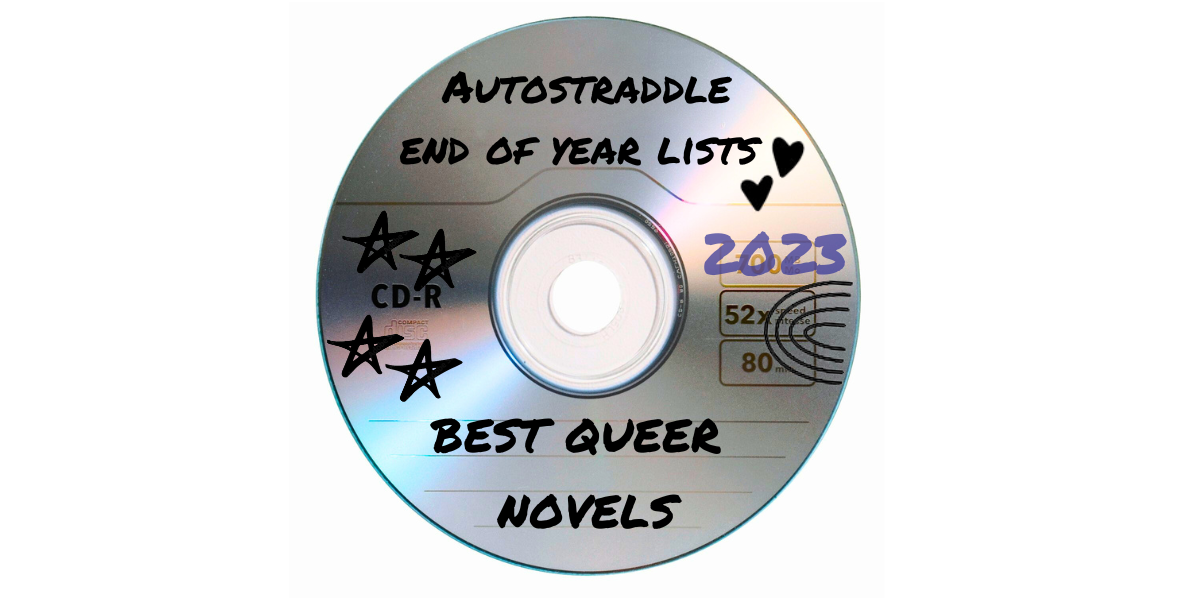
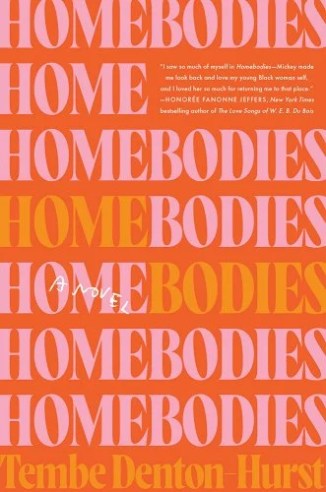
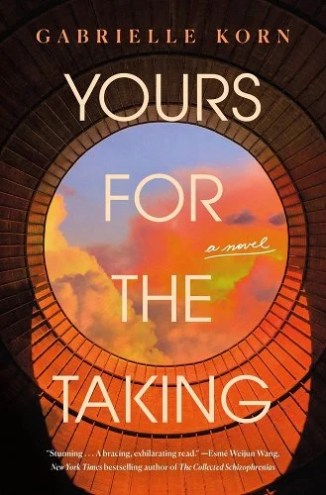
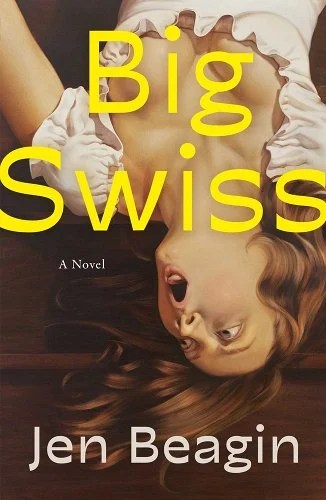
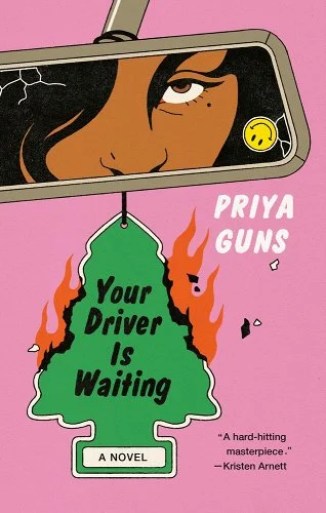
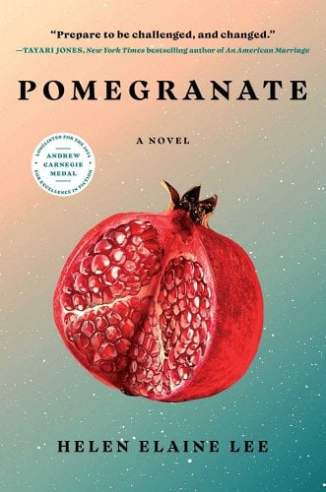
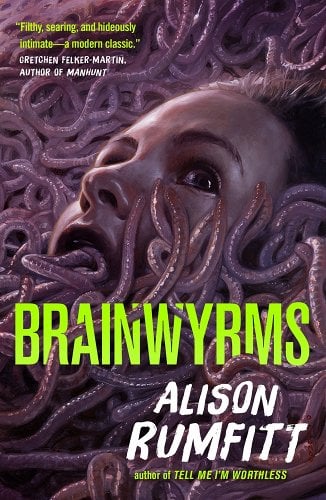
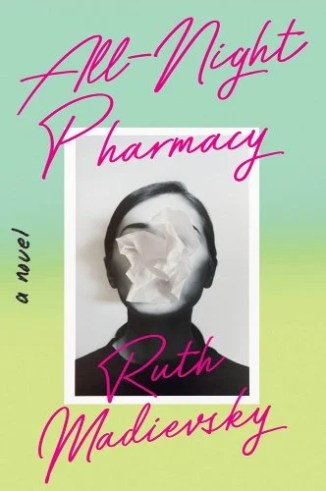
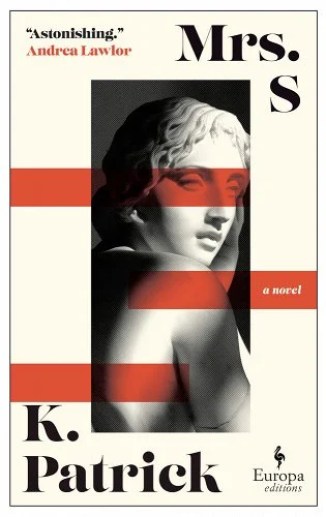
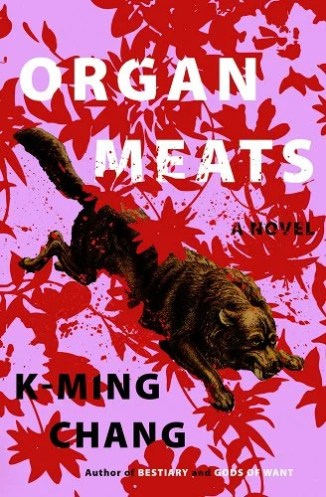
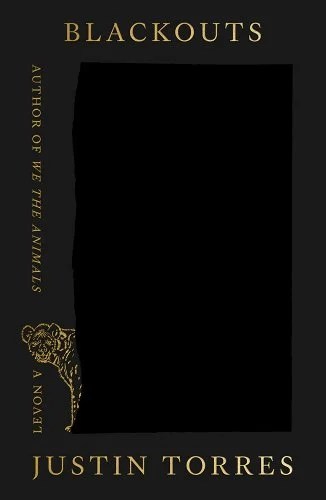
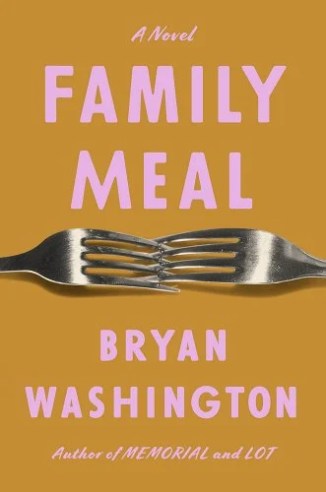
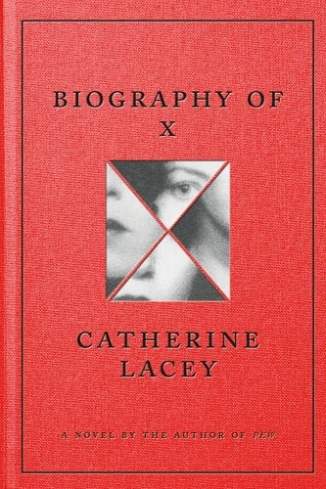

Me, scrolling down & being outraged that Biography of X was not on the list: oh wait haha yup
lolololol
Literally same
BRB adding 12 new novels to my TBR list! my resolution for 2024 is to just read more and this is the perfect place to start :)
Yayyyy hope you enjoy!
Such a great list <3 I still have a couple of these titles I need to get to – going on the list for 2024!
My added recommendation would be I Keep my Exoskeletons to Myself. One of my favorite queer novels of all time
100%- that was my favorite fiction book of the year. I got it from the library, and when I was done felt like I wanted to go buy it to have, which is unusual. So good.
I also was really moved by Exoskeletons and would add to the list.
I love specific lists like this.
Here are my top 10 queer novels of 2023 – all romance or fantasy or a combination of the two – in no particular order:
If Found, Return to Hell by Em X. Liu (3 words: wizard call center)
The Secret Lives of Country Gentlemen by KJ Charles (gay historical romance)
The Fall That Saved Us by Tamara Jerée (moody Sapphic urban fantasy romance between an ex demon hunter and the demon sent to seduce and destroy her)
Let Love Rule by Frances M. Thompson (bi4bi m/f contemporary romance)
Consort of Fire by Kit Rocha (poly high fantasy with a dragon)
A Day of Fallen Night by Samantha Shannon (queer high fantasy with LOTS of dragons)
Shipwrecked: Being a tale of true love, magic, and goats by Juniper Butterworth (goblin core / cozy fantasy Sapphic romance)
Can I Steal You for a Second? by Jodi McAlister (Sapphic bi4bi romance between 2 contestants on a Bachelor like dating show)
The Fake Boyfriend Fiasco by Talia Hibbert (2023 edition) (m/f romance with a bi man)
The Sleeping Soldier by Aster Glenn Gray (gay retelling of Sleeping Beauty)
Bonus books:
My top book of 2023 was Hijab Butch Blues by Lamya H, which is a memoir, not a novel (which is kind of funny because of the 89 books I read this year, all but 4 were fiction)
Top books that I read in 2023 specifically because of AutoStraddle, that weren’t published in 2023:
The Unbalancing by R.B. Lemberg (2022)
Buffalo is the New Buffalo by Chelsea Vowel (2022)
Xenocultivars: Stories of Queer Growth, edited by Jed Sabin and Isabela Oliveira (2022)
My top queer novels of 2023 (in alphabetical order):
1. The Adult by Bronwyn Fischer
2. Flux by Jinwoo Chong
3. Idlewild by James Frankie Thomas
4. My Mother Says by Stine Pilgaard
5. Speech Team by Tim Murphy
6. The Unfortunates by J.K. Chukwu
7. Your Love Is Not Good by Johanna Hedva
It is absolutely outrageous that Chain Gang All-Stars by Nana Kwame Adjei-Brenyah is not on this list.
I mean, this list is personal! I thought Chain-Gang All-Stars was really very good but that his first collection, Friday Black, was better.
However, I agree that I would love to see an Autostraddle review of Chain-Gang All-Stars!
hellow
Thank you for this fabulous list! Love the comments section too…. Which is not something I say very often these days….. I really enjoyed Kaveh Akbar’s “Martyr!” …. A definite fave this year.